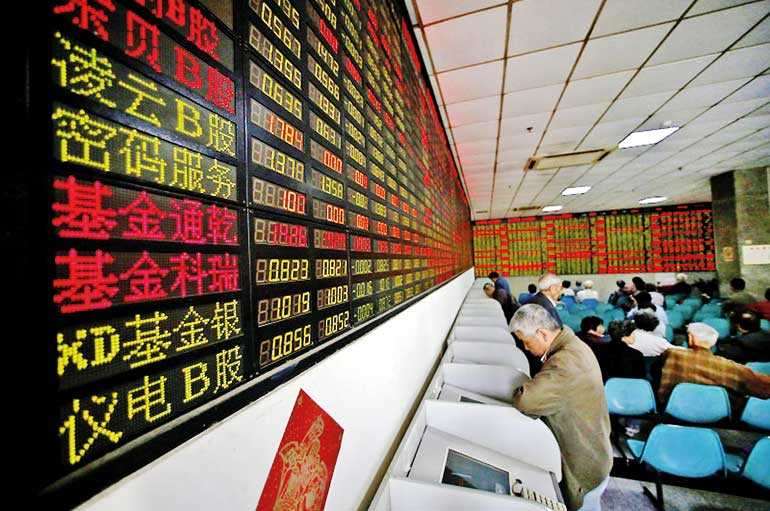Tuesday Feb 24, 2026
Tuesday Feb 24, 2026
Wednesday, 11 December 2019 01:33 - - {{hitsCtrl.values.hits}}

MSCI's broadest index of Asia-Pacific shares outside Japan was down just 0.04 per cent as the Asian trading day began today. — Reuters
SHANGHAI (Reuters): Asian equity markets were a tad lower on Tuesday as investors refrained from making major bets before 15 December, when the next round of US tariffs on Chinese imports is due to take effect.
A Chinese Commerce Ministry official said on Monday that Beijing hopes to make a trade deal with Washington as soon as possible before new US tariffs are due to kick in this weekend.
MSCI’s broadest index of Asia-Pacific shares outside Japan was down just 0.04% as the Asian trading day began on Tuesday.
Australian shares were also 0.04% lower, while Japan’s Nikkei lost 0.23%.
“The decision whether or not to raise tariffs on 15 December rests with President Trump and he has continued his constructive ambiguity on the issue which is keeping markets guessing,” said National Australia Bank Director of Economics and Markets Tapas Strickland.
Tepid trade followed weakness on Wall Street overnight. The Dow Jones Industrial Average fell 0.38% to 27,909.6, the S&P 500 lost 0.32% to 3,135.96 and the Nasdaq Composite dropped 0.4% to 8,621.83.
Investors were also keeping an eye on the US Federal Reserve, which is expected to keep rates unchanged at its two-day policy meeting, which ends Wednesday.
With rates likely to stay put, analysts say investors will be closely watching policymakers’ forecasts for future US economic growth.On Tuesday, the US two-year yield, watched as a sign of market expectations of Fed fund rates, was at 1.6191%, down from its close of 1.627% on Monday.
The 10-year Treasury yield was at 1.8208% from a US close of 1.831% on Monday.
Following the Fed, investors are likely to scrutinise the first policy meeting led by new European Central Bank President Christine Lagarde on Thursday for clues on where she will take the bank.While expectations of a Conservative Party victory in Thursday’s UK election have powered a rally in the pound, options markets indicate worries of a post-election retreat.
“Polls have been wrong before, so a surprise can’t be ruled out – that’s exactly what happened in the 2017 election,” analysts at ANZ said in a morning note.
“But it’s not just about Brexit. Fiscal expansion is also on the cards, with ending austerity a major theme of the election irrespective of who wins,” they said. Sterling, which hit its highest level against the dollar since April on Monday, inched up 0.02% to buy $1.3145.
The dollar rose 0.04% against the yen to 108.59 and the euro was up 0.03% at $1.1065.
The dollar index, which tracks the US currency against a basket of six major rivals, was at 97.644.
Worries over trade pushed oil prices lower. Data released on Sunday showed that Chinese exports declined for a fourth straight month, underscoring the impact of the trade war between the US and China, which is in its 17th month.
US West Texas Intermediate crude dipped 0.25% to $58.87 a barrel.
Gold was down less than 0.1% on the spot market, fetching $1,460.64 per ounce.